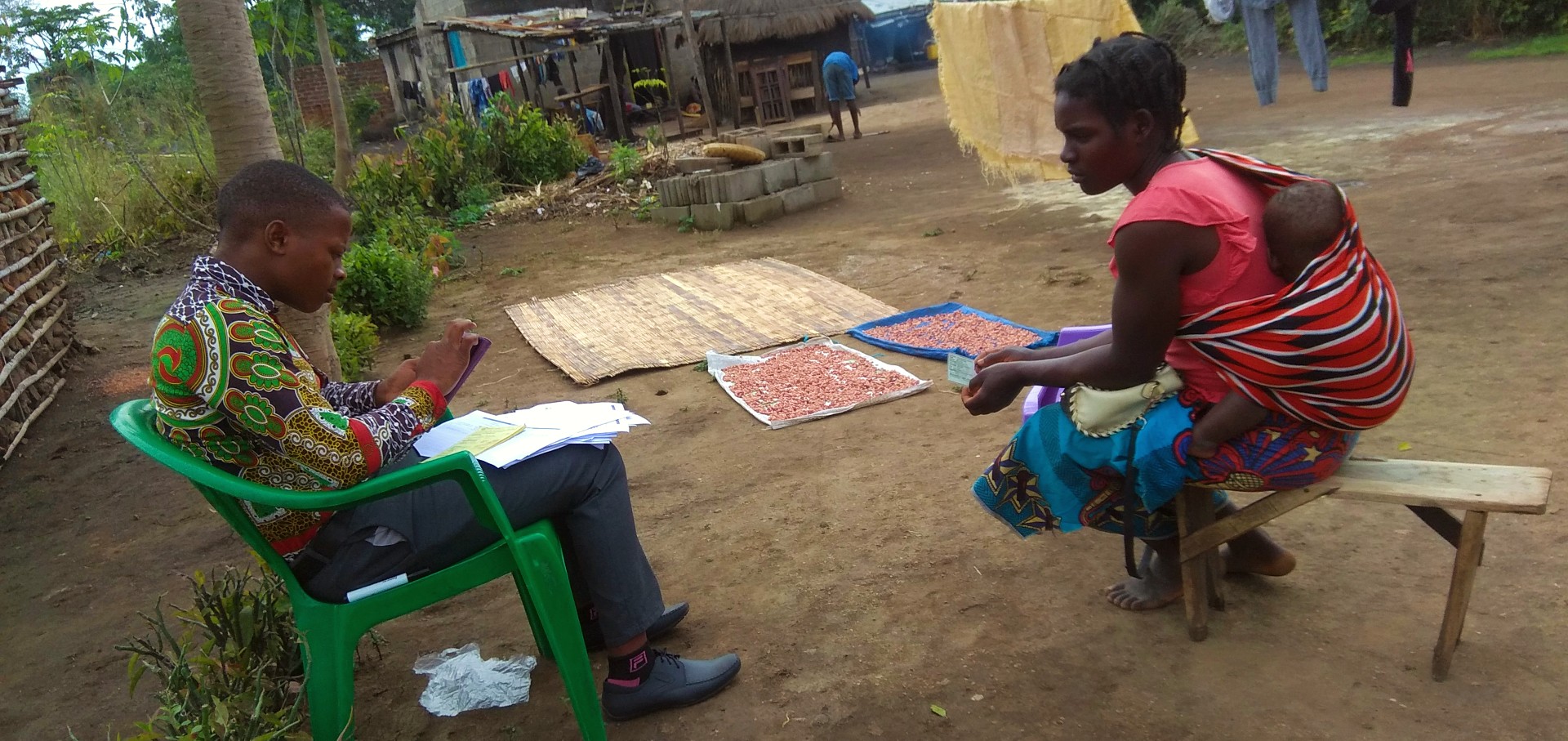The Recommended Malaria Prevention in Pregnancy Is Only Completed by Less Than 25% of Women in Three Out of The Four African Countries Studied
These are the main findings of a study that is part of the TIPTOP project, aimed at improving malaria prevention during pregnancy in four high-burden African countries.
01.02.2021
The majority of pregnant women attending antenatal care (ANC) clinics in the areas studied in Madagascar, Nigeria and the Democratic Republic of Congo did not receive the three recommended doses of malaria preventive treatment. In Mozambique, the coverage was higher, although there were areas below the target of universal coverage. These are the main conclusions of a study led by the Barcelona Institute for Global Health (ISGlobal), an institution supported by the “la Caixa” Foundation, and conducted as part of the TIPTOP project.
Pregnant women are particularly vulnerable to malaria infection resulting in negative health consequences for the mother and the baby. For this reason in countries with moderate to high malaria transmission, the World Health Organization recommends intermittent preventive treatment of at least three doses of sulphadoxine-pyrimethamine (IPTp-SP) given to pregnant women during their ANC visits. To date, 36 African countries have adopted this recommendation, yet coverage remains very low with an average of 34% of pregnant women in SSA receiving at least 3 doses of IPTp-SP in 2019.
The TIPTOP project, funded by Unitaid and coordinated by Jhpiego, was launched three years ago with the objective of increasing IPTp coverage in four African countries through a community-based strategy, whereby community health workers deliver the preventive treatment (C-IPTp).
“To measure the effect of C-IPTp in increasing coverage, we first assessed baseline uptake of IPTp in project implementation areas” explains Clara Menéndez, study coordinator and director of the Maternal, Child and Reproductive Health Initiative at ISGlobal. To meet this objective, a series of surveys were conducted in eight districts across the four partner countries (Madagascar, Mozambique, Nigeria and the Democratic Republic of Congo).
During the surveys approximately 4,000 women were interviewed between March and October 2018. The results of the surveys showed that, in study areas of three of the four project countries, less than 25% of the women eligible for IPTp received three or more doses of SP (IPTp3+). This was despite the fact that more than 40% of women attended at least four ANC visits in all project areas. “This suggests that many women who attend the ANC visits do not receive IPTp, and that opportunities for malaria prevention are being missed,” says Clara Pons, first author of the study. In Mozambique, IPTp3+ coverage was 34% in one district and almost double (63%) in another neighbouring district (Nhamatanda). “We do not know the reasons for this high coverage, although a possible explanation is the well functioning outreach ANC clinics in the area, ” adds Pons-Duran. The authors point out that IPTp coverage results vary compared to estimates at national, or even at district level, underlining the importance of getting data from smaller geographical scale. The study also showed that in all project areas women with secondary education were more likely to have taken at least three doses of IPTp than women who never attended school.
To evaluate the community-based approach promoted by TIPTOP, another study was conducted with the objective of identifying factors that would influence the acceptance of such an intervention in the communities where it would be implemented. The study, published recently, underlines the importance of building trust between communities and community health workers, and identifies mechanisms that can contribute to the acceptability and success of the intervention. Among other findings, the study shows that pregnant women would accept receiving IPTp from community health workers if they are perceived to be competent and if they had received training in maternal health aspects.
References
Pons-Duran C, Llach M, Sacoor Ch et al. Coverage of intermittent preventive treatment of malaria in pregnancy in four sub-Saharan countries: findings from household surveys. Int J Epidemiol. Dec 2020. https://doi.org/10.1093/ije/dyaa233
Enguita-Fernández C, Alonso Y, Lusengi W et al. Trust, community health workers and delivery of intermittent preventive treatment of malaria in pregnancy: a comparative qualitative analysis of four sub-Saharan countries. Global Public Health. Dec 2020. https://doi.org/10.1080/17441692.2020.1851742



